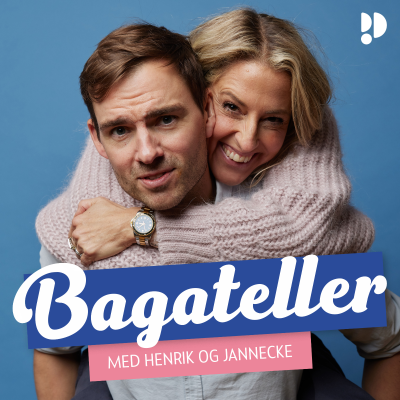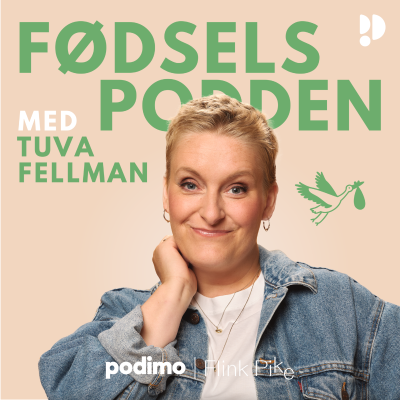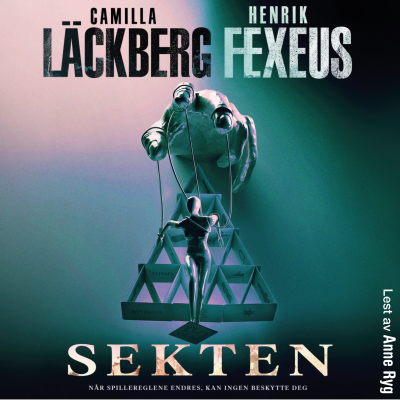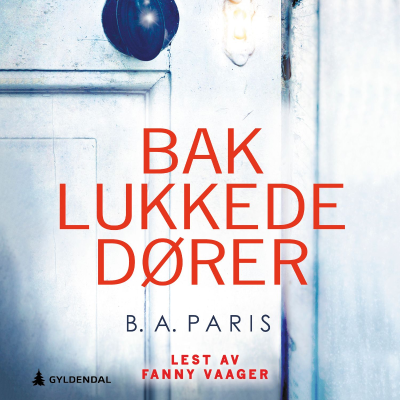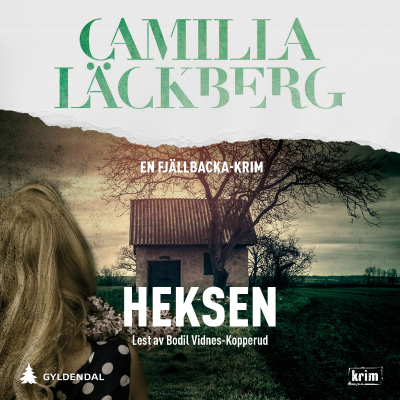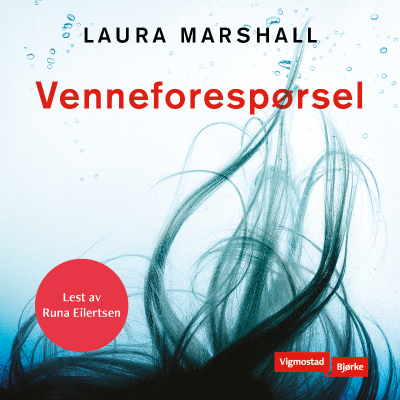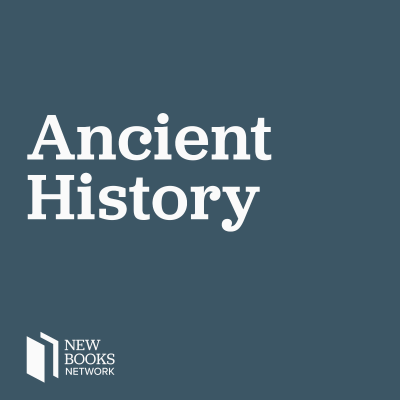
New Books in Ancient History
Podkast av New Books Network
Interview with scholars of the Ancient World about their new books
Prøv gratis i 7 dager
99,00 kr / Måned etter prøveperioden.Avslutt når som helst.
Alle episoder
613 EpisoderStar. Stjarna. Setareh. Thousands of miles apart, humans look up at the night sky and use the same word to describe what they see. Listen to these English, Icelandic, and Iranian words, and you can hear echoes of one of history's most unlikely, miraculous journeys. For all of these languages – and hundreds more – share a single ancient source. In a mysterious Big Bang of its own, this proto tongue exploded outwards, forming new worlds as it spread east and west. Today, nearly half of humanity speaks an Indo-European language. How did this happen? In Proto: How One Ancient Language Went Global [https://bookshop.org/a/12343/9781639732586] (HarperCollins, 2025), acclaimed journalist Laura Spinney sets off to find out. Travelling over the steppe and the silk roads, she follows in the footsteps of nomads and monks, Amazon warriors and lion kings – the ancient peoples who spread their words far and wide. In the present, Spinney meets the scientists, archaeologists and linguists racing to reanimate this lost world. What they have learned has vital lessons for our modern age, as people and their languages are on the move again. Proto is a revelatory portrait of world history in its own words. This interview was conducted by Dr. Miranda Melcher whose book [https://www.bloomsbury.com/uk/securing-peace-in-angola-and-mozambique-9781350407930/] focuses on post-conflict military integration, understanding treaty negotiation and implementation in civil war contexts, with qualitative analysis of the Angolan and Mozambican civil wars. You can find Miranda’s interviews on New Books with Miranda Melcher [https://newbooksnetwork.com/category/special-series/new-books-with-miranda-melcher], wherever you get your podcasts. Let's face it, most of the popular podcasts out there are dumb. NBN features scholars (like you!), providing an enriching alternative to students. We partner with presses like Oxford, Princeton, and Cambridge to make academic research accessible to all. Please consider sharing the New Books Network with your students. Download this poster here [https://drive.google.com/file/d/18YFnB006Nb1ON9_LF2tKvDJjir4d6lLB/view?usp=sharing] to spread the word. Please share this interview on Instagram [https://www.instagram.com/newbooksnetwork], LinkedIn [https://www.linkedin.com/company/new-books-network/], or Bluesky [https://bsky.app/profile/newbooksnetwork.bsky.social]. Don't forget to subscribe to our Substack here [https://newbooksnetwork.substack.com/] to receive our weekly newsletter. Learn more about your ad choices. Visit megaphone.fm/adchoices [https://megaphone.fm/adchoices]
Living With Risk in the Late Roman World [https://bookshop.org/a/12343/9781512827392](U Pennsylvania Press, 2025)explores the ever-present experiences of risk that characterized the daily existence of individuals, communities, and societies in the late Roman world (late third century CE through mid-sixth century CE). Recognizing the vital role of human agency, author Cam Grey bases his argument on the concept of the riskscape: the collection of risks that constitute everyday lived experience, the human perception of those risks, and the actions that exploit, mitigate, or exacerbate them. In contrast to recent grand narratives of the fate of the late Roman Empire, Living with Risk in the Late Roman World focuses on the quotidian practices of mitigation and management, foreknowledge and prediction, and mobilization and manipulation of risks at the individual and community levels. Grey illustrates the ubiquity of these practices through a collection of anecdotes that emphasize the highly localized, heterogeneous, and complementary nature of riskscapes: members of local communities enlisting figures of power to neutralize the hazards posed by imminent catastrophes, be it a tsunami, earthquake, or volcanic eruption; Christian holy figures both suffering and imposing bodily affliction as part of their claims to control such hazards and thereby to exercise influence in these communities; intimate experiences of seasonality and weather that shaped local practices of subsistence but also of self-representation; and geographically specific and fiercely contested claims to special knowledge and control of water. Multidisciplinary in its methodology and provocative in its argumentation, Living with Risk in the Late Roman World demonstrates that human communities in the ancient past were inextricably intertwined with the world around them, and that the actions they took simultaneously responded to and shaped the risks—both hazardous and favorable—that they perceived. New Books in Late Antiquity is presented by Ancient Jew Review [https://www.ancientjewreview.com/] Cam Grey [https://www.classics.upenn.edu/people/cam-grey] is Professor of Classics at the University of Pennsylvania Michael Motia [https://www.umb.edu/directory/michaelmotia/] teaches in Classics and Religious Studies at UMass Boston Learn more about your ad choices. Visit megaphone.fm/adchoices [https://megaphone.fm/adchoices]
Plants, Politics and Empire in Ancient Rome [https://bookshop.org/a/12343/9781009113960] (Cambridge University Press, 2022) by Dr. Annalisa Marzano investigates the cultural and political dimension of Roman arboriculture and the associated movement of plants from one corner of the empire to the other. It uses the convergent perspectives offered by textual and archaeological sources to sketch a picture of large-scale arboriculture as a phenomenon primarily driven by elite activity and imperialism. Arboriculture had a clear cultural role in the Roman world: it was used to construct the public persona of many elite Romans, with the introduction of new plants from far away regions or the development of new cultivars contributing to the elite competitive display. Exotic plants from conquered regions were also displayed as trophies in military triumphs, making plants an element of the language of imperialism. Dr. Marzano argues that the Augustan era was a key moment for the development of arboriculture and identifies colonists and soldiers as important agents contributing to plant dispersal and diversity. This interview was conducted by Dr. Miranda Melcher whose book [https://www.bloomsbury.com/uk/securing-peace-in-angola-and-mozambique-9781350407930/] focuses on post-conflict military integration, understanding treaty negotiation and implementation in civil war contexts, with qualitative analysis of the Angolan and Mozambican civil wars. You can find Miranda’s interviews on New Books with Miranda Melcher [https://newbooksnetwork.com/category/special-series/new-books-with-miranda-melcher], wherever you get your podcasts. Let's face it, most of the popular podcasts out there aredumb. NBN features scholars (like you!), providing an enriching alternative tostudents. We partner with presses like Oxford, Princeton, and Cambridge to makeacademic research accessible to all. Please consider sharing the New BooksNetwork with your students. Download this poster here [https://drive.google.com/file/d/18YFnB006Nb1ON9_LF2tKvDJjir4d6lLB/view?usp=sharing] to spread the word. Please share this interview on Instagram [https://www.instagram.com/newbooksnetwork], LinkedIn [https://www.linkedin.com/company/new-books-network/],or Bluesky [https://bsky.app/profile/newbooksnetwork.bsky.social]. Don't forget to subscribe to our Substack here [https://newbooksnetwork.substack.com/] toreceive our weekly newsletter. Learn more about your ad choices. Visit megaphone.fm/adchoices [https://megaphone.fm/adchoices]
In The Nero-Antichrist: Founding and Fashioning a Paradigm [https://bookshop.org/a/12343/9781108491495] (Cambridge UP, 2020), Shushma Malik reconstructs the means by which the emperor Nero came to be identified with the New Testament's antichrist. Malik surveys the first four Christian centuries to show how Nero mythology developed, often in ways that were much more positive than we might expect, and how early Christians appropriated this tradition as an apologetic weapon, to demonstrate that their scriptures had in fact predicted the character of his reign. By the fifth century, this argument was less appealing, and largely dropped out of view among Christian expositors until its revival in the nineteenth century, by, among other writers, Oscar Wilde. Crawford Gribben [https://pure.qub.ac.uk/portal/en/persons/crawford-gribben(9c12859e-6933-4880-b397-d8e6382b0052).html] is a professor of history at Queen’s University Belfast. Learn more about your ad choices. Visit megaphone.fm/adchoices [https://megaphone.fm/adchoices]
In 2012, Steve Green, billionaire and president of the Hobby Lobby chain of craft stores, announced a recent purchase of a Biblical artefact—a fragment of papyrus, just discovered, carrying lines from Paul's letter to the Romans, and dated to the second century CE. Noted scholar Roberta Mazza was stunned. When was this piece discovered, and how could Green acquire such a rare item? The answers, which Mazza spent the next ten years uncovering, came as a shock: the fragment had come from a famous collection held at Oxford University, and its rightful owners had no idea it had been sold. The letter to the Romans was not the only extraordinary piece in the Green collection. They soon announced newly recovered fragments from the Gospels and writings of Sappho. Dr. Mazza's quest to confirm the provenance of these priceless fragments revealed shadowy global networks that make big business of ancient manuscripts, from the Greens' Museum of the Bible and world-famous auction houses like Sotheby's and Christie's, to antique shops in Jerusalem and Istanbul, dealers on eBay, and into the collections of renowned museums and universities. Dr. Mazza's investigation informs her book, Stolen Fragments: Black Markets, Bad Faith, and the Illicit Trade in Ancient Artefacts [https://bookshop.org/a/12343/9781503632509] (Redwood Press, 2024), and forces us to ask what happens when the supposed custodians of our ancient heritage act in ways that threaten to destroy it. Stolen Fragments illuminates how these recent dealings are not isolated events, but the inevitable result of longstanding colonial practices and the outcome of generations of scholars who have profited from extracting the cultural heritage of places they claim they wish to preserve. Where is the boundary between protection and exploitation, between scholarship and larceny? Our guest is: Dr. Roberta Mazza, who is Associate Professor of Papyrology at the University of Bologna. She previously held positions at the University of Manchester, where she was honorary curator of the Manchester Museum, and at the University of California, Berkeley. Our host is: Dr. Christina Gessler [https://christinagessler.com/], who works as a developmental editor for scholars, and is the producer of the Academic Life podcast. Playlist for listeners: * A Conversation with Curators from the Smithsonian [https://newbooksnetwork.com/considering-museum-work-a-conversation-with-curators-from-the-smithsonian#entry:140933@1:url] * The House on Henry Street [https://newbooksnetwork.com/exploring-public-facing-humanities#entry:133571@1:url] * Archival Etiquette: What to know before you go [https://newbooksnetwork.com/archival-etiquette-what-to-know-before-you-go#entry:97648@1:url] * Project Management for Researchers [https://newbooksnetwork.com/project-management-for-researchers#entry:383017@1:url] * Where Research Begins [https://newbooksnetwork.com/where-does-research-really-begin#entry:183381@1:url] * The Museum of Failure [https://newbooksnetwork.com/samuel-west-on-the-museum-of-failure#entry:122125@1:url] Welcome to Academic Life, the podcast for your academic journey—and beyond! You can support the show by downloading and sharing episodes. Join us to learn from experts inside and outside the academy, and around the world. Missed any of the 250+ Academic Life episodes? Find them here. [https://newbooksnetwork.com/category/up-partners/academic-life] And thank you for listening! Learn more about your ad choices. Visit megaphone.fm/adchoices [https://megaphone.fm/adchoices]
Prøv gratis i 7 dager
99,00 kr / Måned etter prøveperioden.Avslutt når som helst.
Eksklusive podkaster
Uten reklame
Gratis podkaster
Lydbøker
20 timer i måneden


